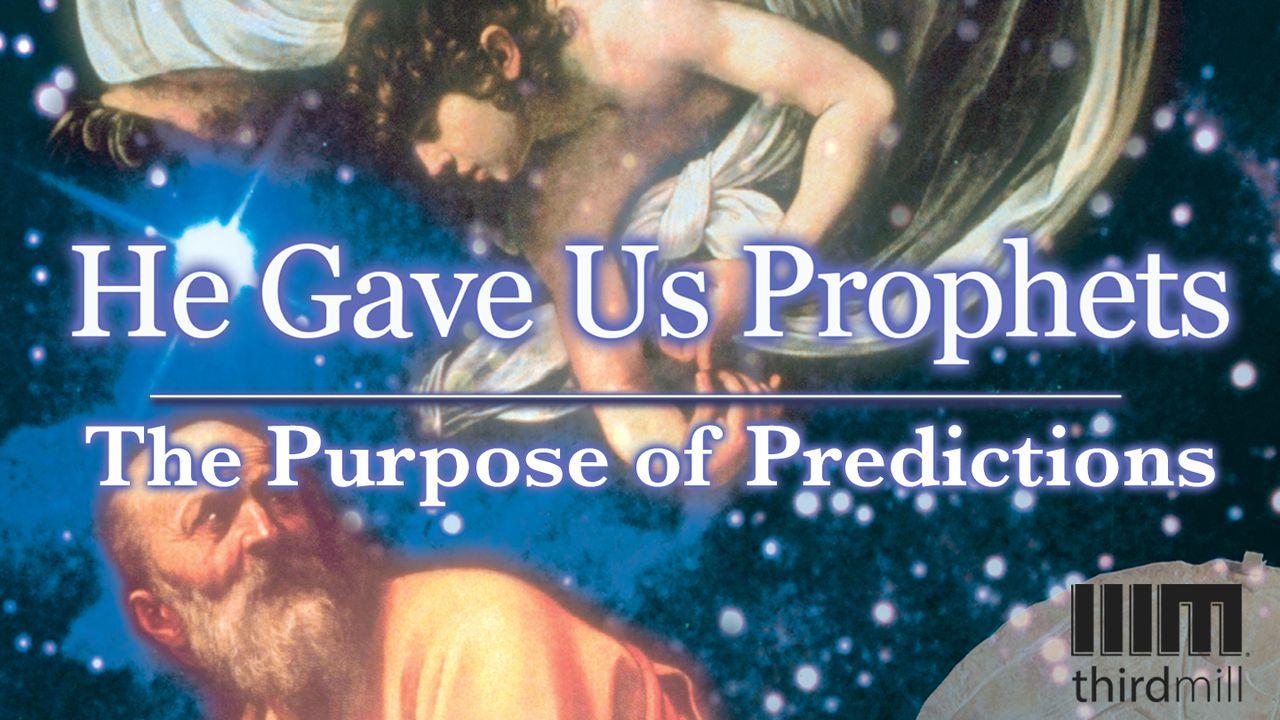He Gave Us Prophets: The Purpose of PredictionsSample

God’s Providence: Esther 2, 9
The providence of God may be defined as God’s active involvement in history as He works out His eternal plan for the universe. According to the Scriptures, God does not distance Himself from His creation simply watching His immutable plan unfold. Instead, He has a role for Himself in His eternal plan. This is why the Bible often speaks of God as the living God. It is because He is an actor on the stage of history and constantly interacts with His creation in providence. The Westminster Confession of Faith can help us understand these matters plainly. In chapter 5, paragraph 2 we read these words about the providence of God:
Although, in relation to the foreknowledge and decrees of God, the first Cause, all things come to pass immutably, and infallibly; yet, by the same providence, he ordereth them to fall out, according to the nature of second causes, either necessarily, freely, or contingently.
Here we see that from an eternal perspective the plan of God will be accomplished without fail, immutably and infallibly. But we also see that from an historical, providential perspective, God works out His plan by interacting with his creation in different ways. He interacts with second causes, or creaturely causes, in at least three different ways. God works out His plan by ordering events so that they follow each other either necessarily, freely, or contingently. These distinctions are important, so let’s unpack them just a little bit.
Sometimes the providence of God causes things to happen necessarily. The events that are in mind here are things that take place according to the regular laws of nature, laws like the law of gravity. The laws of nature provide predictable and necessary patterns of providence, yet at the same time, the Confession of Faith also states that some events occur freely. In other words, they appear random from a human point of view. Rolling the dice, weather patterns, and other things in life like this are ultimately under the control of God, but they seem, from a human vantage point, to be at random or freely associated. Finally, the Confession of Faith tells us that some things happen in history contingently. Of course, God was always in charge of all these events, but he controlled the direction of history in these cases by interacting with the contingencies of human choice.
Scripture
About this Plan

This reading plan explores four topics related to prophetic words about the future: God's sovereignty, human contingencies, degrees of certainty, and desired outcomes.
More
We would like to thank Third Millennium Ministries for providing this plan. For more information, please visit:
http://thirdmill.org
Related Plans

Devoted: All In

The Comparison Trap: Finding Contentment in God's Provision

Becoming Love: If We Start at Finish, Where Do We End? (Part 1)

Motivation to Never Give Up - Faith & Film

Soaring Higher

12-Day Advent Devotional for Families

Defying Materialism: A Men's Devotional

When Your Child Fails: Turning Your Child’s Mistakes Into Moments of Grace and Growth

Advent Meditations
